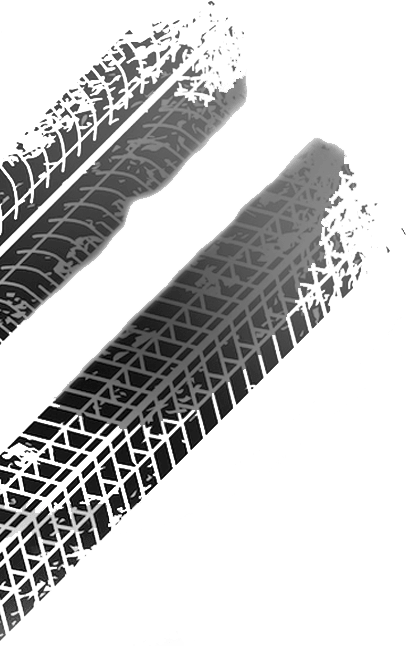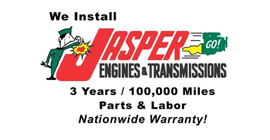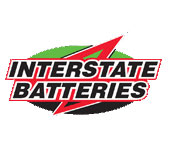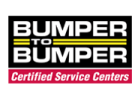
AUTONET TV
Archive for October 2023Oil's Well That Ends Well (Oil Change Grades and Weight)Posted October 29, 2023 1:00 AMChanging your oil regularly is one of the most important things you can do to keep your vehicle running well. And knowing the right type of oil to use is also very important. Engine oil is classified by weight, but it doesn't refer to how much the oil would weigh if you put it on a scale. It refers to viscosity, or how easily the oil flows through the engine. Most engines operate normally at around 210°F/99°C. The viscosity, or weight, is assigned a number by how well it flows at that temperature. The lower the number, the more freely it flows. Most vehicle engines use what's called a multigrade oil which behaves differently in different temperatures. Multigrade oils have a "W" in their viscosity number that you may have seen on a bottle of oil, something like 5W30. The W stands for winter and shows how freely it flows in colder temperatures. That means a 5W30 oil will behave like a 5 weight oil in lower temperatures (less viscous or thinner) and a 30 weight oil in warmer temperatures (more viscous or thicker). That's important on a cold day because the oil needs to behave like a thinner oil when you start your engine since it need to lubricate engine components immediately to protect the metal components. Then as the engine warms up, it behaves like a thicker oil to prevent friction among those parts. Pretty neat trick, right? The type of oil you use can differ depending on what type of climate you operate your vehicle in and how your vehicle is used (carrying big loads, towing, etc.). Your owner's manual contains several different recommendations based on these factors. Your service advisor can recommend the right oil for your needs. Like Shakespeare said, "Oil's well that ends well." Joe D'Auria's Auto Have a Ball! Know your Ball Joints (Ball Joints)Posted October 22, 2023 11:52 AMWe all have joints in our own skeletal system, but did you know your vehicle has some joints of its own? One of the most important is called a ball joint. One of the interesting things is that it's somewhat similar to the ball and socket joints we have in our hips and shoulders. A ball joint allows two parts it joins together to move in more than one direction at the same time. Think about your wheels. They have to move up and down when there are bumps in the road but in sideways directions when you are making a turn. As you can see, the ball joints are important for your steering and handling to work correctly. Since ball joints do so much, they can wear out and become loose. When the ball wears down or the socket gets worn, there can be too much play in them. It can get so bad that the ball can come out of the socket and your wheel can fall off, a dangerous situation. Ball joints can also seize up. Some of them are sealed and never require maintenance; others require periodic lubrication. Here are some signs that your ball joints are going bad:
The earlier a failing ball joint is discovered, the better. The best way is to have regular inspections by a technician. Your service facility will periodically check ball joints at intervals recommended by the manufacturer. The cost to replace them can vary widely depending on whether you have a vehicle with a 2-ball or 4-ball configuration. Also, sometimes just the joints can be replaced, but other times they are part of a larger control arm assembly that has to have all the parts replaced at the same time. Your vehicle's proper steering, handling and tire wear all contribute to a better, safer driving experience. Make sure your ball joints are up to the job. Joe D'Auria's Auto No Fueling! (Fuel Filler Location)Posted October 15, 2023 9:29 AMIf you've ever gotten in an unfamiliar vehicle, maybe a rental car, you may have pulled up to the gas pump and wondered, "Which side is the fuel filler on?" Here's a tip for you. There is usually a little arrow on the instrument panel near the fuel gauge that points to the side where the fuel filler is. But why are the fuel fillers not all on the same side, anyway? There are lots of reasons. At one time, many manufacturers tried putting them in an easy-to-reach spot: in the center of the vehicle's rear end. Some even hid them behind a hinged license plate door. Cool place, but it turned out not to be a good idea. When a vehicle with a fuel filler in the rear was hit by another vehicle from behind, it was much more prone to catch fire and explode. Safety regulations now dictate that the fuel filler doors be placed within crumple zones and away from where they can drip fuel on hot exhaust pipes or near electrical connections. But why do manufacturers put them on either side? Some say it should be on the side away from the road. That way if you run out of gas and have to add a little from a gas can as your standing at the side of the road, you'll be a little farther away from passing traffic. So some companies from North America and many European firms with left-hand drive put their fillers on the right side. Some manufacturers think convenience for the driver is paramount, so they put their fuel fillers on the driver's side. If you have a vehicle with a cable release for the fuel door inside the cabin, it's usually on the same side as the steering wheel. As you can see, there's no standardization. Fuel doors need regular maintenance such as lubrication, and your gas cap (if your vehicle has one) should seal properly. Have your service facility inspect those regularly. Wherever your fuel filler is, it's obviously important that you can get at it easily because you have to fuel up sometime. Otherwise, you're not going to go too far! Joe D'Auria's Auto Some New Boots (Suspension Maintenance)Posted October 8, 2023 12:16 PMThere are some boots that don't come in a shoe box and aren't worn on your feet. They are called axle or CV boots, and they can be important parts for many vehicles. That CV stands for constant velocity. CV axles are mainly used in front-wheel drive and all-wheel drive vehicles. They're also used in some rear-wheel drive vehicles with independent suspensions. They have two CV joints, one inner and one outer, placed between the axle and the drive wheels. That way the vehicle's engine power can drive the wheels, no matter what angle they are. They also adjust for the different speeds wheels turn as they go around corners. Because roads are full of all sorts of hazards (dirt, oil, water, grime), these CV joints need to be protected. They also have grease in them to keep the bearings moving smoothly. That's the job of the rubber boots that are supposed to keep that debris out. These CV or axle boots are made of rubber or plastic and usually last a long time without any problem. But sometimes they fail, either from being hit by debris or age causing the rubber or plastic to deteriorate. That can allow the grease to leak out of the joint and the moisture to get in. And that's where the trouble is. So it's important to have a vehicle's CV boots checked periodically, especially when they begin to have more than 100,000 miles/160,000 kilometers on them. A technician inspects them for tears or cracks. Sometimes if the problems are found early enough, the boots can be replaced and the joints can be re-packed with grease. But sometimes the CV joint can wear out even though the boot is intact. When the CV joint fails, you might hear a grinding, humming or clicking noise and feel vibration. Some of these can be difficult to access for service, so many service advisors will recommend replacing the joints and boots at the same time. Just remember, new CV boots won't make a fashion statement, but they will keep your vehicle going down the road for years to come. Joe D'Auria's Auto Put on the Brakes: Brake Service at Joe D'Auria's AutoPosted October 1, 2023 7:09 AMWhen it comes to preventive maintenance and vehicle care, most CHERRY HILL drivers know how important it is to check their brakes. But brakes are more than just brake pads and shoes. There are a lot of components in the brake system, and they all need to be in good working order. Joe D'Auria's Auto | ||
SearchArchiveApril 2018 (18)May 2018 (4) June 2018 (4) July 2018 (5) August 2018 (4) September 2018 (5) October 2018 (4) November 2018 (4) December 2018 (5) January 2019 (5) February 2019 (4) March 2019 (5) April 2019 (4) May 2019 (4) June 2019 (5) July 2019 (4) August 2019 (4) September 2019 (5) October 2019 (4) November 2019 (4) December 2019 (5) January 2020 (5) February 2020 (4) March 2020 (5) April 2020 (4) May 2020 (5) June 2020 (4) July 2020 (4) August 2020 (5) September 2020 (4) October 2020 (4) November 2020 (5) December 2020 (4) January 2021 (6) February 2021 (4) March 2021 (4) April 2021 (4) May 2021 (5) June 2021 (4) July 2021 (4) August 2021 (5) September 2021 (4) October 2021 (5) November 2021 (4) December 2021 (4) January 2022 (6) February 2022 (4) March 2022 (4) April 2022 (4) May 2022 (5) June 2022 (4) July 2022 (5) August 2022 (4) September 2022 (4) October 2022 (5) November 2022 (4) December 2022 (4) January 2023 (5) February 2023 (4) March 2023 (4) April 2023 (5) May 2023 (4) June 2023 (4) July 2023 (5) August 2023 (4) September 2023 (4) October 2023 (5) November 2023 (4) December 2023 (5) January 2024 (5) February 2024 (4) March 2024 (5) April 2024 (4) May 2024 (1) | CategoriesMaintenance (35)Fluids (9)Serpentine Belt (3)Fuel System (33)Tires and Wheels (29)Automotive News (7)Shocks & Struts (5)Fuel Economy (3)Service Standards (9)Cabin Air Filter (5)Windshield Wipers (5)Timing Belt (4)Battery (11)Auto Safety (5)Suspension (3)Service Intervals (4)Brakes (12)Steering (8)Inspection (4)Older Vehicles (3)Winter Prep (3)Drive Train (6)Emergency Items (1)Check Engine Light (3)Parts (5)Exhaust (8)Alignment (10)Air Conditioning (6)Headlamps (4)Safety (4)Diagnostics (4)Differential Service (2)Monitoring System (2)What Customers Should Know (38)Oil Change (4)Alternator (4)Dashboard (1)Cooling System (6)Transmission (8)Trip Inspection (2)Water Pump (1)Keys to a long lasting vehicle (1)Diesel Maintenance (1)Tires (4)Warranty (1)Fuel Saving Tip: Slow Down (1)Safe Driving (1)PCV Valve (1)Brake Service (1)Engine Air Filter (1)Tire Rotation and Balancing (2)Wheel Bearings (1) | |

OUR REVIEWS


Steve Bender, 01/11/2022Joe, Chris, Ryan and the rest of the crew have been taking care of our cars for 30 years. They're the most honest mechanics I've ever interacted with and have worked on our various cars including: Volvo, Ford, BMW, Acura, Benz, Hyundai, Honda... If there were a button for 11 stars, that's the one I'd hit!

Get free Coupons
Take advantage of these great offers!









